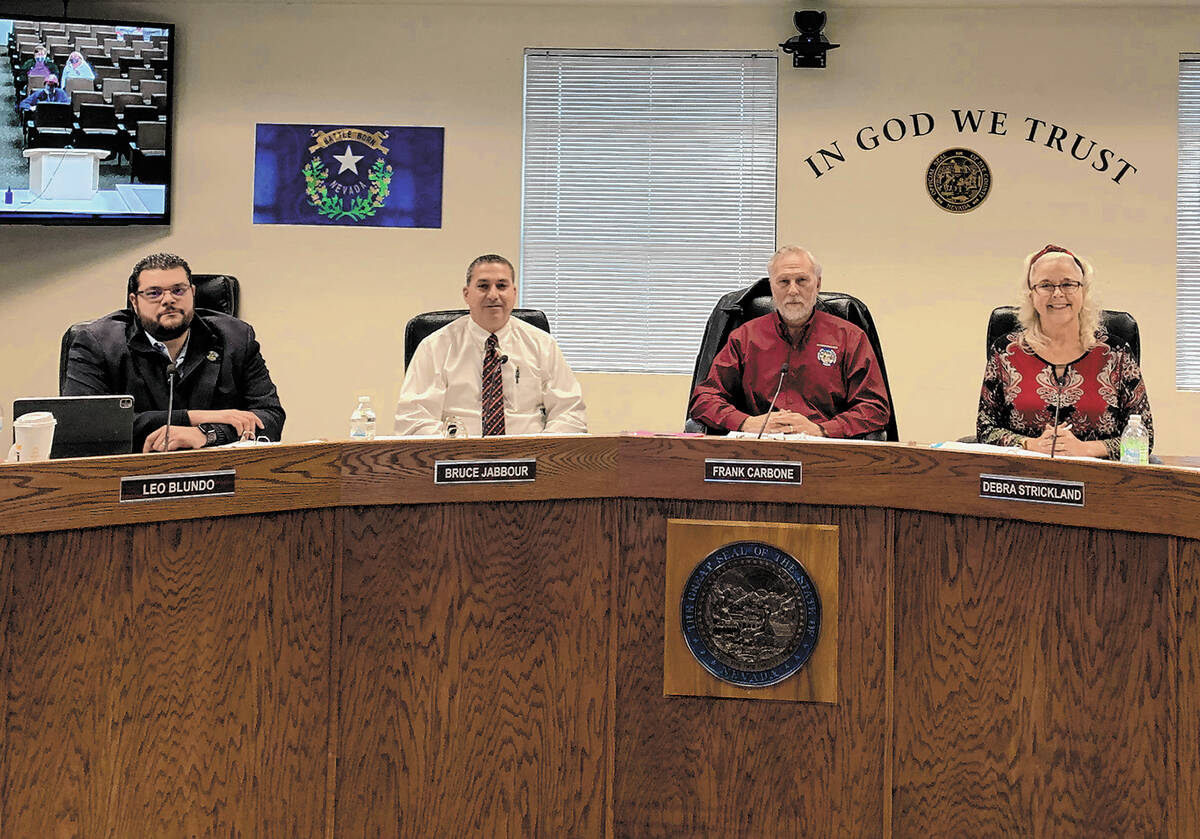County divvies $9M for pandemic relief
Nye County commissioners on Wednesday allocated more than $9 million in federal American Rescue Plan Act (ARPA) funds to help local individuals, nonprofits and small businesses recover from the pandemic.
They earmarked hundreds of thousands of dollars for public health initiatives, child care assistance, rent relief and support for the local homeless population.
As part of the spending package, more than $53,000 in premium pay will be reserved for the county’s essential workers, including first-responders, health care workers, truck drivers, pharmacists, gas station attendants, grocery store employees and others who were deemed most necessary to the workforce during the pandemic.
Details for identifying those who may be eligible for the money haven’t been finalized.
Officials will be outlining public policy by late April or early May, which will set guidelines for the distribution and oversight of the spending.
“We are doing our best to get this funding to the community ASAP and get help where help is needed,” said Nye County Comptroller Savannah Rucker.
Local officials say they’re committed to streamlining the application process so those who need assistance aren’t beleaguered by red tape.
President Joe Biden signed the $1.9 trillion American Rescue Plan Act on March 11. It’s the latest federal stimulus bill to aid public health and economic recovery from the COVID-19 pandemic. The plan includes $350 billion in emergency funding for state, local, territorial and tribal governments to divvy for approved projects.
Commissioners debated for nearly five hours Wednesday on how to prioritize spending Nye County’s cut of the money, when the community’s needs are greater than $9 million allocated by the federal government.
“There were a lot of people who were affected [by the pandemic] and they were never made whole,” Commissioner Leo Blundo said. “I am a strong advocate for small business and the Average Joe that’s working out there. How do we help them?”
A survey conducted in June 2021 by the National Endowment for Financial Education found that 60 percent of Americans were either extremely concerned or somewhat concerned about the state of their finances because of the pandemic. Coping with the financial fallout from the pandemic has become a new normal — the federal funds aim to help get Americans back on their feet.
Stacy Smith, CEO of NyE Communities Coalition (NyECC), a nonprofit which provides a number of resources to help low-income residents in the region, said the pandemic exposed a number of “vulnerabilities that we have” as a community.
“This money gives us the opportunity to build-in resiliency and systems of support,” she said.
One of the greatest needs in the community right now is establishing a formalized food bank, she said.
“We have no open food pantry where anyone can come to that is not done through an informal volunteer system.”
Smith urged commissioners on Wednesday to consider allocating funding for that type of project.
Kathie McKenna, executive director of Nevada Outreach Training Organization, a nonprofit that provides a number of services to the community, said the funds should be used to treat underlying systemic issues in the community.
When a struggling client approaches the organization about their broken refrigerator, but they’re also behind on their utility bills, McKenna said it requires a multi-faceted approach to solve the problem.
“What we try to do is help them as a whole,” she said. “Don’t just put a Band-Aid on a broken arm.”

















